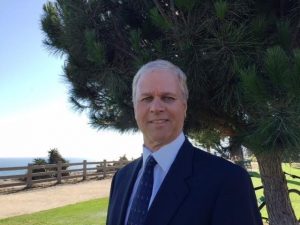Don't Sue To Silence Speech -- Unless You Want To Get SLAPPed
A way to fight back when litigation is used as a weapon against free speech.

David Dizenfeld
When the world learned earlier this year that billionaire Peter Thiel was secretly financing Hulk Hogan’s litigation against Gawker, some observers of the media industry wondered if it might become a trend. Could wealthy individuals or organizations start using litigation as a weapon to punish or to deter free speech they might not like?
Whether this happens remains to be seen. But it’s worth noting that some jurisdictions have laws specifically designed to protect against such abuses of the system. I recently chatted with Los Angeles lawyer David Dizenfeld about these “anti-SLAPP” laws, which exist in many states and might soon become federal law.

Legal AI: 3 Steps Law Firms Should Take Now
DL: The slaps that most Above the Law readers are familiar with are, well, benchslaps. Can you explain for folks not familiar with it what a “SLAPP” is?
DD: SLAPPs are Strategic Lawsuits Against Public Participation. They are meritless lawsuits intended to bully and silence truthful free speech. While legitimate litigation serves to right a wrong, the primary motivation behind a SLAPP is to quiet the lawful exercise of First Amendment rights, along the way clogging the courts with frivolous lawsuits.
DL: You have come out in support of H.R. 2304, the proposed SPEAK FREE Act. Can you describe for us what the Act would do and why it’s important?
DD: Anti-SLAPP protection is available in California and to varying degrees in about 27 other states, D.C. and Guam. As such, there is need for federal anti-SLAPP protection to help promote some uniformity across state lines and avoid forum-shopping.
Sponsored

Navigating Financial Success by Avoiding Common Pitfalls and Maximizing Firm Performance

The Business Case For AI At Your Law Firm


Is The Future Of Law Distributed? Lessons From The Tech Adoption Curve

Navigating Financial Success by Avoiding Common Pitfalls and Maximizing Firm Performance
DL: Can you tell us a bit about your own interest in, and experience with, strengthening anti-SLAPP laws?
DD: A declaration filed by Arent Fox LLP on behalf of a deep-pocketed client, the Los Angeles Jewish Home for the Aging (“LAJHA”), unwittingly revealed that Arent Fox and LAJHA arranged on or about January 15, 2010, to file a lawsuit against substantiated whistleblowers, well before alleged causes of action were even purported to have occurred — a lawsuit in search of causes of action.
Weeks later, an email inquiring as to LAJHA’s withholding of glucose test results from an 86-year-old diabetic resident and her daughter — namely, my girlfriend’s mother and my girlfriend — was sent to LAJHA’s COO, copying our attorney. Within less than a week, Arent Fox filed a defamation action against us for that email communication with our own attorney, an action that was subsequently ruled to violate California’s anti-SLAPP law. (Here is a copy of my statement entered into the Congressional Record by Chairman Franks during the House Judiciary Committee / Subcommittee on the Constitution and Civil Justice hearing on H.R. 2304 SPEAK FREE Act (at 23:39), which contains more information.)
DL: So the defamation claim filed by Arent Fox against you got stricken under California’s anti-SLAPP law. What happened in the rest of the litigation?
DD: As reported in Chris Morran’s Consumerist article and as you can see in various court filings, in addition to their calamitous defamation SLAPP being stricken, the rest of Arent Fox’s lawsuit on behalf of L.A. Jewish Home was unconditionally dismissed in its entirety, after they prolonged it for over three years, even trying to continue start of trial at the end. Due diligence and reasonable investigation could have avoided time-consuming and expensive litigation and fall-out from all of Arent Fox’s causes being stricken or dismissed, leaving client L.A. Jewish Home vulnerable to consequences. For example, certainly Arent Fox knew or should have known that no probable cause exists in California for filing a civil harassment action on behalf of a non-natural person.
Sponsored

Early Adopters Of Legal AI Gaining Competitive Edge In Marketplace

Legal AI: 3 Steps Law Firms Should Take Now
DL: Most of our readers here at Above the Law are lawyers, and many of them are litigators who file lawsuits for a living. Is there any danger of anti-SLAPP laws going too far and chilling the filing of legitimate lawsuits, the bread and butter of plaintiffs’ lawyers?
DD: As Professor William Simon of Columbia Law School sets forth in this Consumerist article, an attorney should take advantage of every low-cost method for fact-checking a complaint before filing: “A chilling effect is desirable to the extent it deters illegitimate cases. If lawyers do their jobs, liability shouldn’t have much of an effect on legitimate ones.”
DL: The need for federal anti-SLAPP legislation does sound compelling. How optimistic are you about the chances of the SPEAK FREE Act being passed in the near future?
DD: The bipartisan support the bill is already garnering in Congress is a hopeful sign that it is gaining traction.
DL: Good luck with this effort, and thanks for taking the time to chat!
How One Email Set Off A 6-Year Legal Battle With No End In Sight [Consumerist]
What Are SLAPPs And Anti-SLAPPs… And Why Should You Care? [Consumerist]
David Lat is the founder and managing editor of Above the Law and the author of Supreme Ambitions: A Novel. You can connect with David on Twitter (@DavidLat), LinkedIn, and Facebook, and you can reach him by email at dlat@abovethelaw.com.







